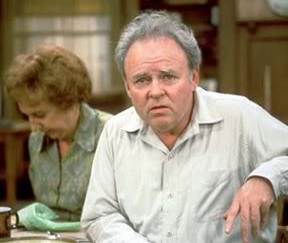America can be two-faced when it
comes to women and sex. A lion’s share of advertising and other media pushes
sexual content and innuendo into our homes with the force of a raging tsunami. Simultaneously,
we are endlessly rebuked for our immoral ways of thinking about issues related
to female gender issues. At the center of it all is the P-word. Some find the
P-word detesting; others love it like crazy and use it every chance they can
get.
From soap operas to soap ads, we’re
bombarded by suggestive words and images. A lot of folks believe, and I count
myself among them, our popular culture is devolving. But we live in a free
market economy, sex sells and America is buying. Yet when it comes to the most
natural things related to women, such as speaking aloud a legitimate word in
the course of a human rights (pro-choice/pro-life) discussion, our collective
consciousness gets turned on its head.
By now many of us are aware of the incident
in which Michigan State Representative Lisa Brown was censured in the
legislature for saying the word ‘vagina’. The following day she was barred from
speaking about anything on the floor
of the House, which caused a firestorm nationwide.
“What she said was offensive,” said
Rep. Mike Callton, according to news reports. He reportedly went on to add, “It
was so offensive, I don’t even want to say it in front of women. I would not
say that in mixed company.”
Rep. Callton’s rebuke of Rep. Brown
reminded me of intolerant expressions spouted by Archie Bunker, TV’s fictitious
patriarch from the hit sitcom “All in the Family.” Back in the ‘70s, such references
to anatomical parts served as fodder for comedy writers as Americans struggled
to come to terms with often irrational insecurities about issues like women’s
rights.
But instead of
berating politicians, we should be thinking about why that word conjures such an
inflammatory connotation. Why are we so uptight when it comes to human sexuality? The duality of America
regarding sex, especially as it relates to women, is as dizzying as it is
conflicting. To quote a line from a movie: ‘Look but don't touch. Touch, but
don't taste. Taste, don't swallow.’
This calls into question, at a time
when ‘damn’ and ‘hell’ can be uttered with impunity on television and radio, why
the word vagina – the correct and proper name for a part of female anatomy – conjures
such discomfort among men and women, myself included. Although I don’t find it
offensive, I do find it challenging to write it in this column, let alone say
it aloud in mixed company.
A few days ago, several thousand
people from around Michigan traveled to Lansing. There, on the steps of the
state capitol, noted playwright Eve Ensler joined legislators who presented the
controversial stage production titled, The Vagina Monologues. A fair number of
men attended and participated in the demonstration. One can only guess but my
hunch is most folks rallied to exercise their freedom of speech and also
support women’s rights.
Which brings us back to the P-word:
power. In nearly all facets of American life, who ultimately has the power to
decide who gets to say what? An intelligent guess might be: it’s the ones at
the top of the political process food chain, as well as those who head up corporations
and systems, including the ones that produce, promote and distribute the gaudy
cosmetics, sexually alluring fashion and racy television shows. And surprise, surprise;
it’s not women.








